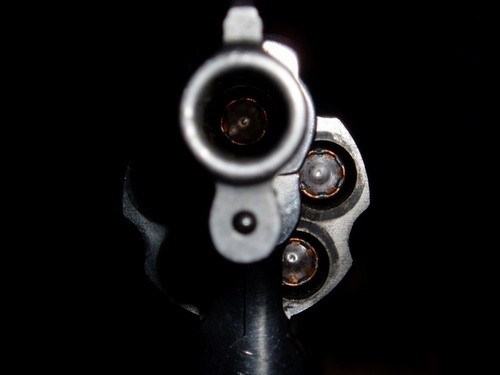There is a different kind of 1 percent, and it isn't people who can afford to buy organic food. It's Americans who carry a handgun on a daily basis.
It's not a surprise, given American history and horrific events like a psychopath in Las Vegas wounding or killing 500 people while police waited 70 minutes to attack him. A nearby hotel guest with a gun could have ended that more quickly.
Up to 7 million have concealed carry permits while up to 9 million might carry a handgun on a monthly basis (not all states require a license for a concealed weapon). That is alarming to Northeastern epidemiologist Professor Matthew Miller and colleagues, who published their survey results, funded by two anti-gun groups, and extrapolated figures for the country, in American Journal of Public Health. "We're talking about several million adult handgun owners carrying a loaded firearm on their person every day," Miller said. "That's a sizable number of Americans."

The survey was of 1,444 handgun owners and 24 percent said they carried a gun in the past 30-days. They also self-identified as being most often male, aged 18-29, conservative, and from the South. Race, income, education, and veteran status made no difference. Instead, the vast majority of people cited protection.
As expected, more gun owners carried in states that didn't place greater restrictions on getting a license. New York City will not grant a license at all, for example, so that reduces the number for the state substantially. As access to legal permits becomes restricted, so does concealed carry, which means at least people who legally own guns obey the law.
Ali Rowhani-Rahbar, associate professor of epidemiology at the University of Washington School of Public Health and co-author of the study, says it is important to study handgun carrying because about 90 percent of all firearm homicides and non-fatal firearm crimes for which the type of firearm is known are committed with a handgun. That is true. For all the attention small caliber semi-automatic rifles, colloquially called "assault rifles", get, they used in are a tiny fraction of crimes and almost never in suicides, where two-thirds of handgun deaths sit. We'd save more lives banning hammers than we would banning rifles, according to the FBI.
Miller has a different agenda. He believes there are public health consequences to concealed weapon permits. That legal concealed weapons permits will cause more harm. Statistics have not borne that out so far. While California gun purchases doubled, its homicides using guns plummeted. Gun owners are most likely to be white married men over the age of 55, hardly a high crime demographic.
He then blames a National Rifle Association conspiracy for why he can't get money from the federal government rather than from foundations to do more gun surveys.
"There is no credible evidence to suggest that allowing people to carry has any beneficial effect on crime and violence," Miller said. "And although some recent studies suggest there may be harmful effects, there is a lot more we need to know before we can reliably place in perspective what those harmful effects are."
Both true. There is no credible evidence concealed carry saves lives. Nor that it costs lives. In an analysis of 10 countries, making guns easier to carry legally did not increase crime, murder or public health problems of any kind.
Citation: Ali Rowhani-Rahbar MD, PhD, MPH, Deborah Azrael PhD, Vivian H. Lyons MPH, Joseph A. Simonetti MD, MPH, and Matthew Miller MD, ScD, Loaded Handgun Carrying Among US Adults, 2015, American Journal of Public Health, October 19, 2017 DOI: 10.2105/AJPH.2017.304072





Comments